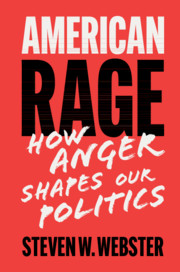Refine search
Actions for selected content:
15 results
6 - In Memoriam of Walther Rathenau
-
- Book:
- Invisible Fatherland
- Published online:
- 18 December 2025
- Print publication:
- 22 January 2026, pp 156-180
-
- Chapter
- Export citation
10 - Wealth Inequality
- from Part IV - Societal Impact
-
- Book:
- The Principles of Family Business Law
- Published online:
- 12 December 2025
- Print publication:
- 08 January 2026, pp 205-239
-
- Chapter
- Export citation
Liberal democratic values among immigrants in Europe: Socialisation and adaptation processes
-
- Journal:
- European Journal of Political Research ,
- Published online by Cambridge University Press:
- 09 October 2025, pp. 1-24
-
- Article
-
- You have access
- Open access
- HTML
- Export citation
In Pinochet’s Shadows: The Incidence of Authoritarian/Democratic Values on the Vote Choice in the 2022 Constitutional Plebiscite in Chile
-
- Journal:
- Latin American Politics and Society / Volume 67 / Issue 3 / August 2025
- Published online by Cambridge University Press:
- 26 August 2025, pp. 107-124
-
- Article
-
- You have access
- Open access
- HTML
- Export citation
15 - Scope and Depth of International Legitimacy, Modernity, and the West
- from Part V - International Legitimacy and Change
-
- Book:
- The Law and Politics of International Legitimacy
- Published online:
- 14 July 2025
- Print publication:
- 24 July 2025, pp 283-300
-
- Chapter
- Export citation
Confucian Culture and Democratic Values: An Empirical Comparative Study in East Asia
-
- Journal:
- Journal of East Asian Studies / Volume 24 / Issue 1 / March 2024
- Published online by Cambridge University Press:
- 02 April 2024, pp. 71-101
-
- Article
- Export citation
20 - Punishment and Democratic Education
- from Part Three - Key Topics and Concepts
-
-
- Book:
- The Cambridge Handbook of Democratic Education
- Published online:
- 20 April 2023
- Print publication:
- 27 April 2023, pp 328-345
-
- Chapter
- Export citation

American Rage
- How Anger Shapes Our Politics
-
- Published online:
- 31 August 2020
- Print publication:
- 27 August 2020
Preface
-
- Book:
- American Rage
- Published online:
- 31 August 2020
- Print publication:
- 27 August 2020, pp xiii-xvi
-
- Chapter
- Export citation
5 - Anger and Democratic Values in the Mass Public
-
- Book:
- American Rage
- Published online:
- 31 August 2020
- Print publication:
- 27 August 2020, pp 99-121
-
- Chapter
- Export citation
2 - Theories of Public Support for Court-Curbing
-
- Book:
- Curbing the Court
- Published online:
- 14 August 2020
- Print publication:
- 20 August 2020, pp 27-59
-
- Chapter
- Export citation
4 - General Policy Disagreement and Broadly Targeted Court-Curbing
-
- Book:
- Curbing the Court
- Published online:
- 14 August 2020
- Print publication:
- 20 August 2020, pp 93-125
-
- Chapter
- Export citation
Does Deliberative Education Increase Civic Competence? Results from a Field Experiment
-
- Journal:
- Journal of Experimental Political Science / Volume 7 / Issue 3 / Winter 2020
- Published online by Cambridge University Press:
- 15 October 2019, pp. 199-208
-
- Article
- Export citation
Policy Preferences after Crime Victimization: Panel and Survey Evidence from Latin America
-
- Journal:
- British Journal of Political Science / Volume 50 / Issue 4 / October 2020
- Published online by Cambridge University Press:
- 12 February 2019, pp. 1481-1495
-
- Article
- Export citation
The Tunnel at the End of the Light? A Critical Analysis of the Development of the Tri-Council Policy Statement
-
- Journal:
- Canadian Journal of Law & Society / La Revue Canadienne Droit et Société / Volume 26 / Issue 1 / April 2011
- Published online by Cambridge University Press:
- 02 January 2013, pp. 159-176
-
- Article
- Export citation
